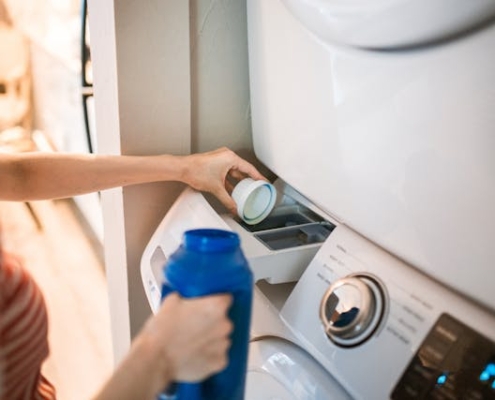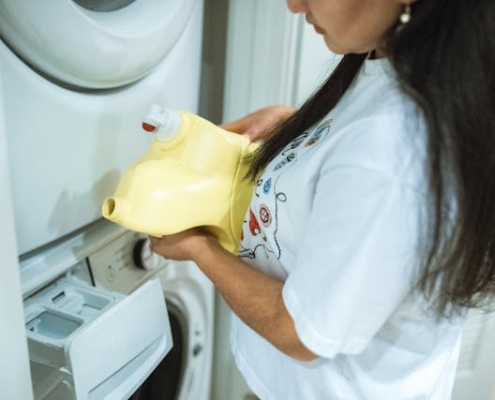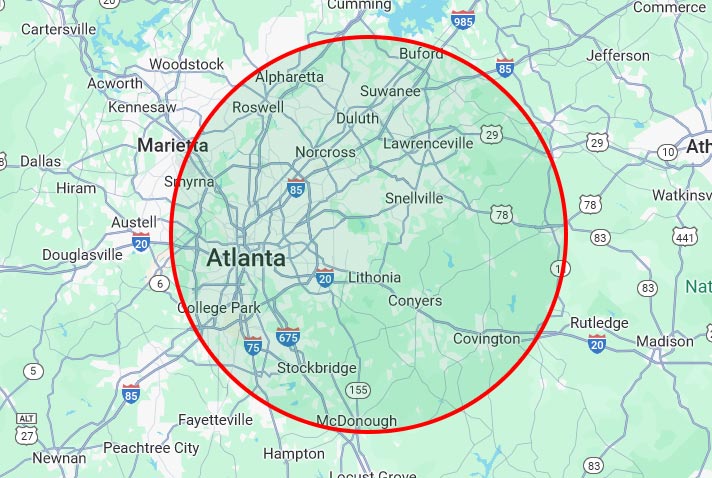The Impact of Hard Water on Washing Machines
 If you’ve been struggling with frequent washing machine issues, hard water may be a hidden culprit. Hard water refers to water high in mineral content, primarily calcium and magnesium. While these minerals are harmless to humans, they can wreak havoc on your appliances. Washing machines, in particular, bear the brunt of hard water damage, leading to inefficiency, wear and tear, and costly repairs.
If you’ve been struggling with frequent washing machine issues, hard water may be a hidden culprit. Hard water refers to water high in mineral content, primarily calcium and magnesium. While these minerals are harmless to humans, they can wreak havoc on your appliances. Washing machines, in particular, bear the brunt of hard water damage, leading to inefficiency, wear and tear, and costly repairs.
This guide breaks down the impact of hard water on washing machines and offers actionable tips to protect your appliance, ensuring it runs smoothly for years to come.
Jump to article sections:
- What is Hard Water and How Does It Affect Washing Machines?
- Signs Your Washing Machine is Suffering from Hard Water Damage
- The Long-Term Effects of Hard Water on Washing Machine Performance
- How Hard Water Impacts Laundry Quality
- Preventative Measures to Protect Your Washing Machine from Hard Water
- DIY Solutions for Hard Water Problems in Washing Machines
- When to Call a Professional for Washing Machine Repair
- Choosing the Right Appliance Repair Service for Hard Water Issues
1. What is Hard Water and How Does It Affect Washing Machines?
Hard water is water that contains a high concentration of dissolved minerals, such as calcium and magnesium. While it’s safe to use for drinking and cleaning, it poses significant problems for household appliances. When hard water flows through your washing machine, these minerals can accumulate in the form of limescale.
Limescale buildup clogs internal components like hoses and pipes, reducing water flow and efficiency. It can also coat the heating elements, forcing your machine to use more energy to heat water. Over time, this buildup increases wear on your washing machine and diminishes its overall performance.
2. Signs Your Washing Machine is Suffering from Hard Water Damage
Recognizing hard water damage early can save your appliance. Look out for these warning signs:
- Limescale buildup: Visible white or grayish residue around the drum, detergent drawer, or hoses.
- Strange noises: Clogged or corroded parts may make your machine sound louder than normal.
- Reduced efficiency: If your clothes feel hard, dingy, or not thoroughly cleaned, hard water could be interfering with detergent performance.
- Longer wash cycles: Blocked water pipes or slower heating caused by limescale can lead to extended cycle times.
Identifying these problems early gives you a chance to address them before more serious damage occurs or you find yourself asking is it worth repairing or replacing my washing machine?
3. The Long-Term Effects of Hard Water on Washing Machine Performance
If left unchecked, hard water can cause serious, long-term damage to your washing machine. One of the biggest concerns is how hard water accelerates appliance wear and tear. Limescale buildup on parts like heating elements, pumps, and seals not only shortens their lifespan but also increases the likelihood of malfunctions.
Hard water also leads to energy inefficiency. When heating elements are coated in mineral deposits, your washing machine uses more energy to heat water and complete its cycles. This not only drives up utility bills but also puts additional strain on the machine. Over time, these issues may result in repairs or your appliance may show signs it’s time for a new washer.
4. How Hard Water Impacts Laundry Quality
Hard water doesn’t just affect your appliance; its presence also impacts the quality of your laundry. The minerals in hard water interfere with the chemical composition of detergents, making them less effective at cleaning your clothes. Here’s what you might notice:
- Residues on fabric: Clothes may feel scratchy or appear dingy due to mineral deposits.
- Stiff towels: Hard water can make fabrics less absorbent over time.
- Faded colors: Repeated washing in hard water can cause colors to fade faster.
If your laundry doesn’t feel as clean or soft as it should, hard water is likely the culprit.
5. Preventative Measures to Protect Your Washing Machine from Hard Water
The good news is that you can take steps to minimize hard water damage to your washing machine. Below are some preventative measures to implement:
- Install a water softener: A water softener can remove excess minerals before the water reaches your appliances, protecting them from limescale buildup.
- Use descaling agents: Regularly run a descaling solution through your washing machine to dissolve limescale. Many brands offer machine-specific cleaners that are effective and safe.
- Adjust detergent use: Hard water often requires more detergent, but using too much can lead to sticky residue buildup. Consider switching to detergents designed for hard water.
- Run maintenance cycles: Consult your machine’s manual for maintenance cycle instructions designed to eliminate mineral deposits.
These simple practices can go a long way in safeguarding your washing machine.
6. DIY Solutions for Hard Water Problems in Washing Machines
For minor limescale buildup or maintenance needs, here are a couple of easy fixes you can try at home:
- Vinegar rinse: Pour two cups of white vinegar into the detergent drawer and run an empty hot water cycle. Vinegar is a natural descaler that can break down mineral buildup.
- Baking soda paste: Mix baking soda with water to form a paste. Use it to scrub visible limescale from the drum and other accessible parts of the machine.
- Clean the detergent drawer: Remove and clean the detergent tray regularly to prevent white residue and clogs.
7. When to Call a Professional for Washing Machine Repair
While preventative care and DIY solutions can address minor hard water issues, sometimes a washing machine is not easy to fix. You should call a professional appliance repair specialist if you notice:
- Frequent error codes or malfunctions related to water flow.
- Persistent limescale buildup despite regular cleaning.
- Damage to key components like the drum or heating element.
Local professionals have the tools and knowledge to diagnose and fix hard water-related issues that are beyond the reach of at-home maintenance.
8. Choosing the Right Appliance Repair Service for Hard Water Issues
 Not all repair companies are the same. To ensure your washing machine gets the proper care, keep these tips in mind when selecting an appliance repair company:
Not all repair companies are the same. To ensure your washing machine gets the proper care, keep these tips in mind when selecting an appliance repair company:
- Look for expertise: Hire a company familiar with hard water-related appliance issues.
- Read reviews: Positive customer reviews are a good indicator of reliability and skill.
- Ask about warranties: A reputable repair service should stand behind their work with warranties on parts and labor.
- Prioritize local services: Local companies often provide faster and more personalized service, which can be crucial in emergencies.
Finding a trusted appliance repair service ensures your washing machine is in good hands, giving you peace of mind. For those in the Atlanta region looking for experienced washing machine repair technicians, look no further than Comfort Appliance Repair.
At Comfort Appliance Repair in Covington, Georgia, we have a team of skilled technicians who specialize in washing machine repair. We provide prompt and efficient Atlanta washing machine repair, dryer repair, oven range repair and more. Call us today for any appliance need – we’ll get you back up and running in no time!
By Dennis Godynuk, Owner of Comfort Appliance Repair
Dennis Godynuk is the owner of Comfort Appliance Repair in Covington, GA. Comfort Appliance provides fast and reliable repair services for all major household appliances. Dennis and his team of experienced technicians can tackle any problem, from broken refrigerators to malfunctioning dishwashers, and their prices are very competitive. Customers can rest easy knowing that their appliances are in good hands when they call Comfort Appliance Repair.



